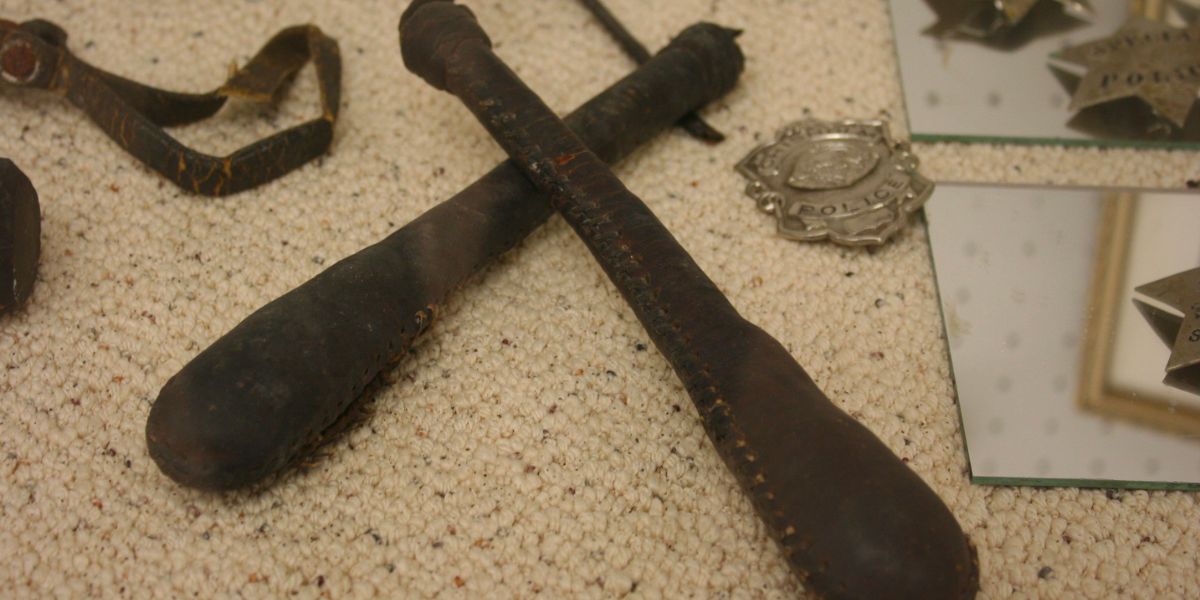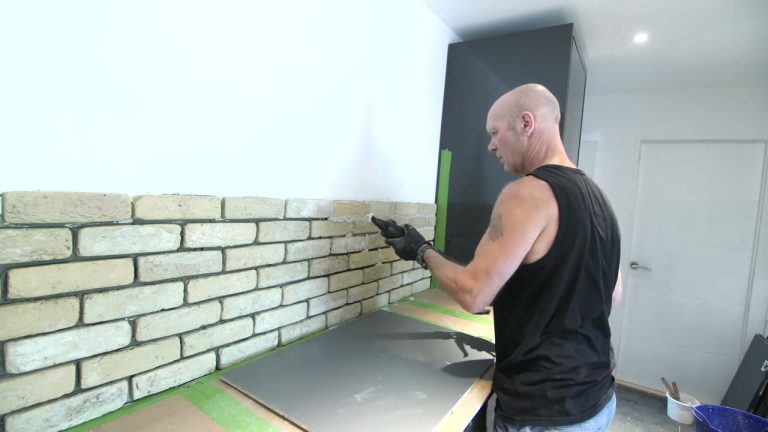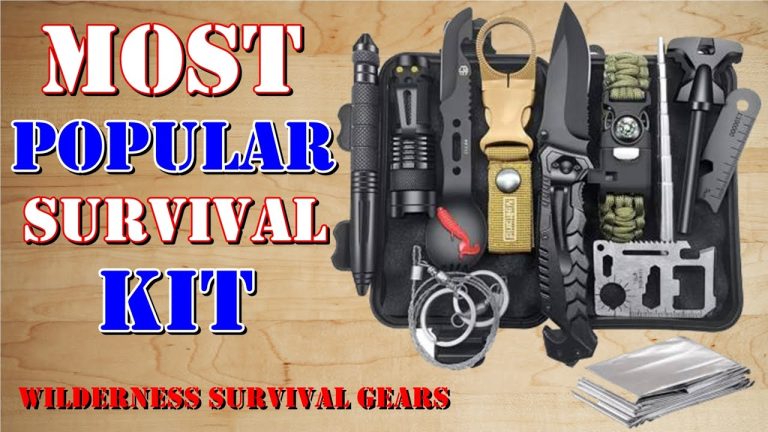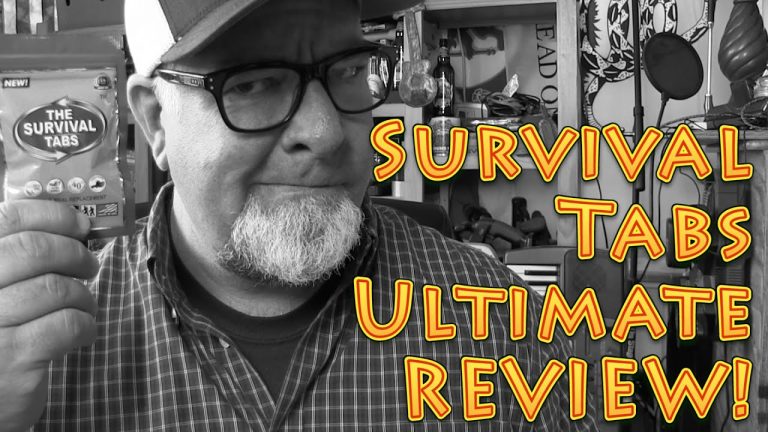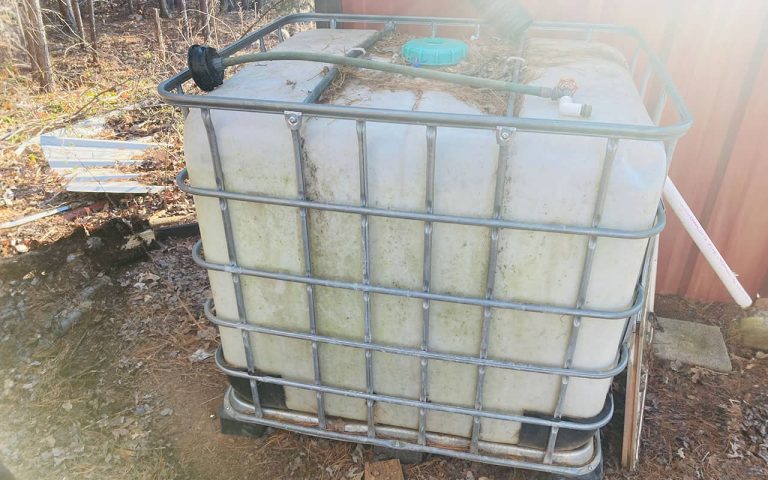Blackjack weapons, also known as saps, are handy club weapons that were once used as police batons. They aren’t nearly as common today, but some people are still intrigued by the idea of having a blackjack weapon at home.
Are they a good option, though? How do you use a blackjack weapon? And are they even legal?
Time to find out.
What Is a Blackjack Weapon?
A blackjack weapon is a club weapon, very similar to a baton, made up of a weight at the end of a short staff. The weight is usually lead wrapped in leather. The lead weight creates kinetic energy when the weapon is swung, thus delivering a heavy blow.
This weapon was carried and wielded by police officers, sailors, and soldiers following its creation in the 19th century. If used properly, it can knock an attacker out with a single blow to the head. On top of that, it’s subtle and difficult to spot, easy to handle, and cheap, making it a great weapon to have on hand.
However, with time, these weapons were proven to be too dangerous, so they were pulled out from police use in the late 20th century. Blackjack weapons can deliver such a hard blow that they can kill a person hit on the head instantly.
Today, you can find them in museums, personal collections, or as a personal defense weapon.
Difference Between a Blackjack Weapon and a Sap
Although they’re often used as a synonym, a sap is actually a specialized version of the blackjack weapon. Unlike the traditional blackjack weapon, which has a round head, the sap’s head, with the weight inside, is flat. As such, you may also see it called a flat sap or beavertail sap.
The sap is less dangerous than a traditional blackjack weapon. Since its head is flat, it delivers the impact over a larger area. This makes it less likely to break bones or seriously injure a person.
Despite this, the sap is still a dangerous weapon, and if someone is struck on the back of the head with one, severe damage could result.
How Do You Use a Blackjack Weapon?
Before we start, I want to point out that blackjack weapons aren’t legal everywhere (something we’ll discuss later), and this section isn’t here to promote illegal activities, just to explore the functionality of a blackjack weapon.
Blackjack weapons can be used both offensively and defensively, and there are a few determining factors that make these weapons very easy to use.
They’re light, so they require very little strength to wield. They’re also short, so you don’t need a big swing to use them, and they’re easy to conceal. However, their length also limits their range and it forces you to get close to your attacker. Another danger about using blackjack weapons is they’re potentially lethal, especially if you don’t know what you’re doing.
Quite simply, hitting someone on the head or the neck with a blackjack weapon comes with the risk of committing murder. It’s better to aim lower for a nonlethal way to incapacitate your attacker.
For example, when police used blackjack weapons, they would strike suspects across their thighs, joints, torso, and back. By doing so, you can immobilize someone without seriously harming them.
There was a practice of aiming for the hands and the collarbone for a while, but it was quickly abandoned because of how easily blackjack weapons broke bones.
When using a blackjack weapon, it’s important to hold it tight (some modern weapons come with a strap), put some strength into the swing, and hit more than once. Because of how light it is, the blackjack weapon was designed to strike a target repeatedly without the user getting tired.
Is a Blackjack Weapon Good for Home Defense?
Personally, I would say that the blackjack is not a good home defense weapon for a multitude of reasons.
First of all, melee weapons will always be second to firearms because they require you to get close to the attacker. Ideally, in self-defense, you’ll keep your attacker at as much of a distance as possible. Because of that, I would always rather have a firearm than a melee weapon in a home defense scenario.
With that being said, the blackjack isn’t even a particularly good melee weapon for home defense. A baseball bat offers a significant power and distance advantage, although it takes more strength to wield. A long staff is also more dangerous than a blackjack weapon, and it keeps your attacker at a distance.
In short, I would not use a blackjack as my go-to home defense weapon, but I don’t see the harm in keeping one around (provided it’s legal in your area).
In some countries, truckers and other professionals who spend a lot of time on the road and bump into all sorts of people have blackjack weapons in their glove compartments…you know, just in case.
Are Blackjack Weapons Legal?
There’s no clear-cut answer to this question. Owning a blackjack weapon and keeping it at home is legal in most states in the United States. In some states, such as California, you’re not allowed to own a blackjack weapon.
When it comes to carrying a blackjack weapon in public, be it openly or as a concealed carry weapon (CCW), the laws differ from state to state. Some states allow it with a license, some states strictly prohibit it, and there are also states with laws that don’t really answer the question because there’s no firm classification of the blackjack weapon.
It’s illegal in California because blackjacks are defined as batons, and owning any type of baton is illegal in California. In Florida, they’re seen as a slungshot weapon, while some states don’t even have a definition of a blackjack weapon.
What does this mean for you? Well, if you want to buy a blackjack weapon, make sure to check local laws first.
Where Do I Buy a Blackjack Weapon?
Because of their questionable legality, the market for blackjack weapons isn’t big, and since the market is so limited, you won’t find them at any outdoor store. In fact, most weapons stores that also sell melee weapons don’t sell blackjacks.
You can only find a few options on Etsy and in some leather workshops.
Image Credits
Blackjacks flickr photo by lars hammar shared under a Creative Commons (BY-NC-SA) license







